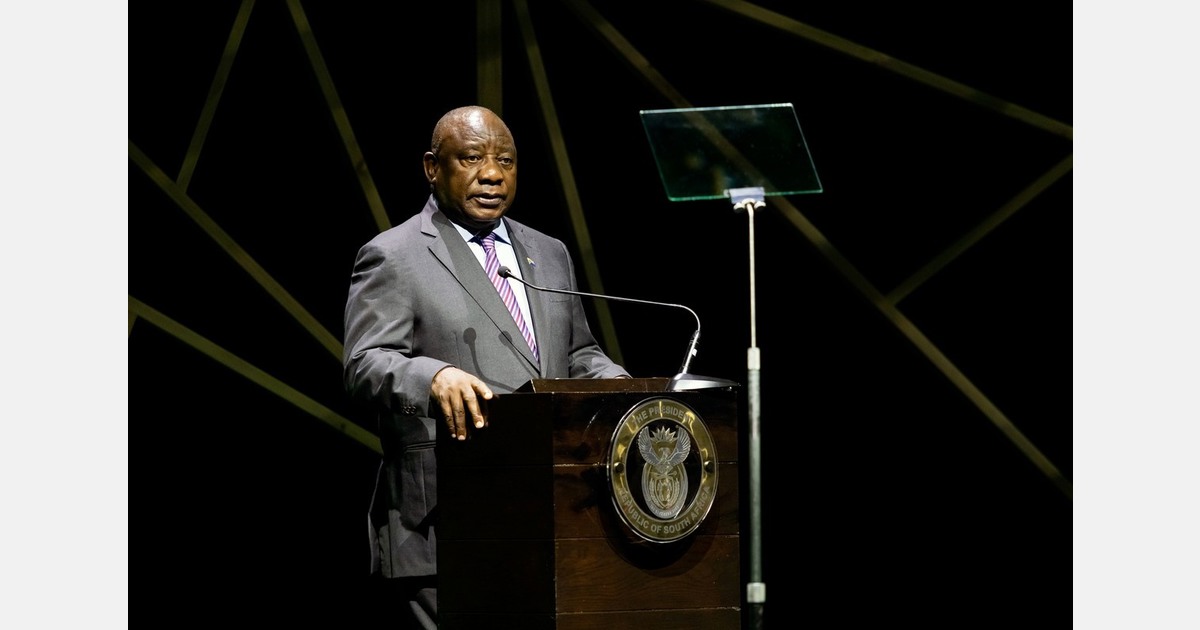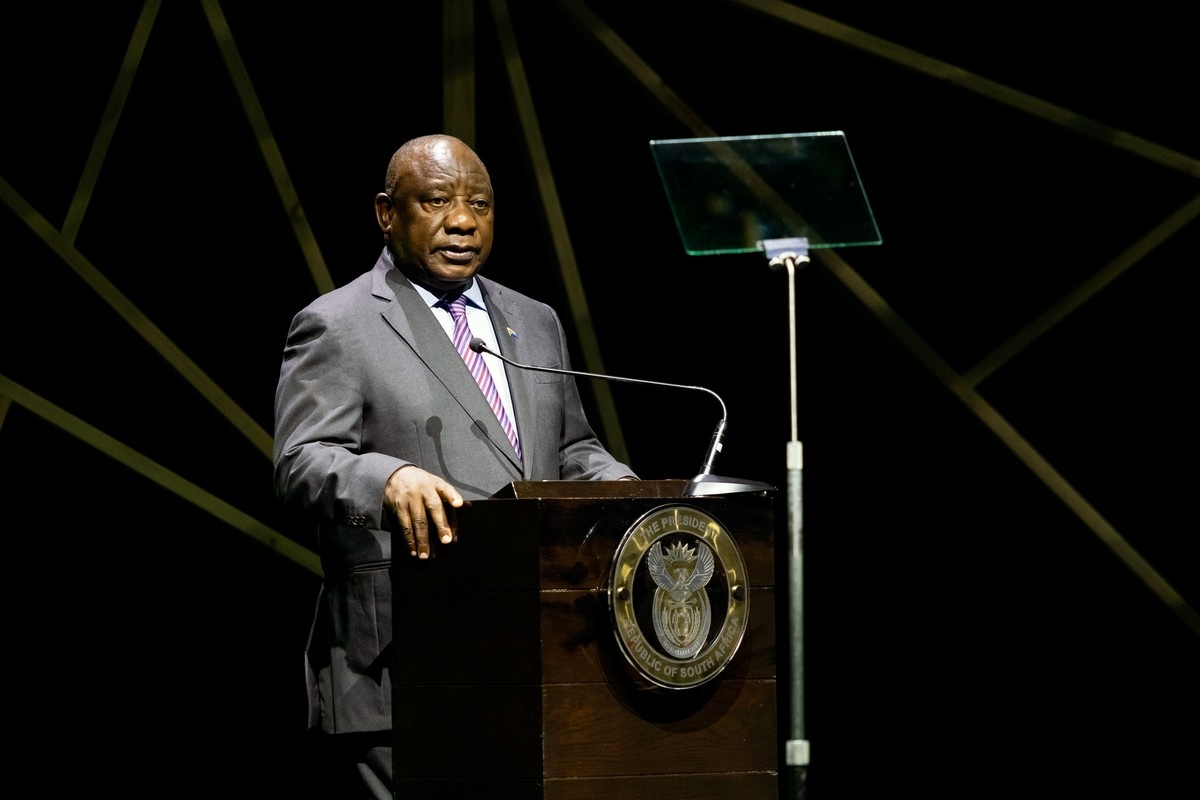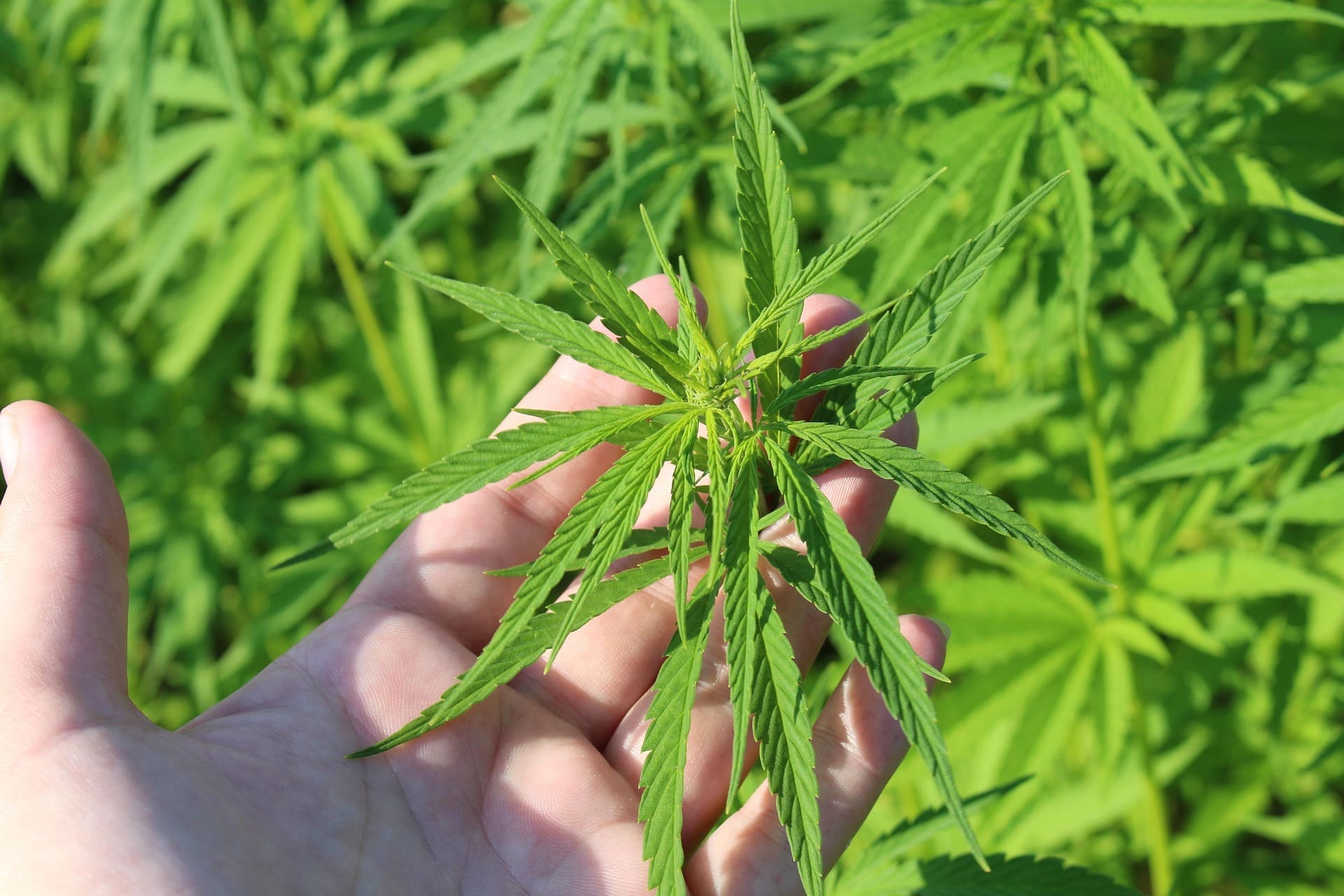During winter clean-ups, greenhouse operators prepare facilities for the next production cycle, with hygiene remaining a critical focus. Effective sanitation during crop transition plays a key role in reducing pathogen pressure and promoting long-term crop health, particularly in operations that manage virus risks such as Tomato brown rugose fruit virus (ToBRFV).
Disinfectants commonly included in greenhouse hygiene programs include Intra Multi Des GA, supplied in North America by Houweling Americas. “This product is widely used by vegetable and ornamental growers as part of comprehensive cleaning and routine sanitation strategies, especially where deep penetration is required on complex surfaces,” says the Houweling Americas team.
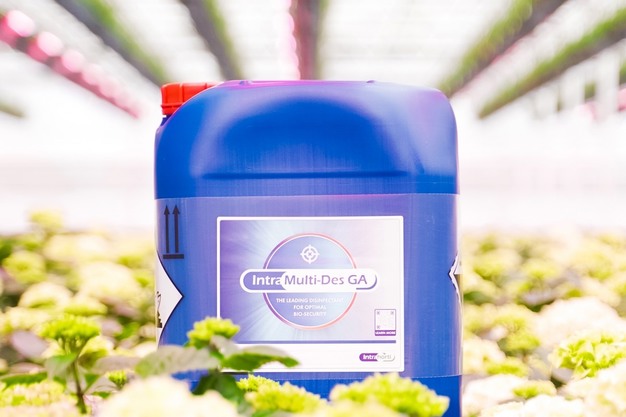 © Houweling Americas
© Houweling Americas
Getting under the surface
Biofilms and organic debris continue to limit the effectiveness of many disinfectants, harboring microorganisms in cracks, crevices, and porous materials. According to the Multi Des GA technical team, the formulation is designed to address this challenge through penetration rather than surface activity.
“Intra Multi Des GA has five active ingredients that work together to provide strong penetration properties, allowing the product to reach microorganisms hiding in difficult access areas,” the team explained. While not positioned as a dedicated biofilm remover, the formulation is intended to reveal and eliminate pathogens sheltered beneath biofilm layers.
For best results, a two-step sanitation approach is recommended: deep cleaning to remove organic matter and biofilm, followed by disinfection. “Skip the cleaning step increases the risk of completely eliminating pathogens,” the team noted, highlighting the continued opportunity for farmer education around proper hygiene sequencing.
The role of cleaning before disinfection
As part of the Intracare product portfolio, Houweling Americas also supplies Intra Foam Organics, a cleaner designed to remove organic material prior to disinfection. Organic debris can significantly reduce disinfectant performance if not completely removed, especially on high-traffic or porous surfaces. When used as a first step, cleaners like Intra Foam Organics help ensure that disinfectants can come into direct contact with target pathogens.
Performance on porous and uneven surfaces
Concrete floors, block walls and other porous greenhouse materials remain among the most difficult areas to sanitize. According to internal tests, Intra Multi Des GA works reliably on these surfaces, moving into the micro-cracks where pathogens can persist.
“When applied to porous materials such as concrete blocks, the formulation moves significantly across the substrate,” the team explained. “This behavior is different from traditional disinfectants that remain on the surface and do not reach the embedded microorganisms.”
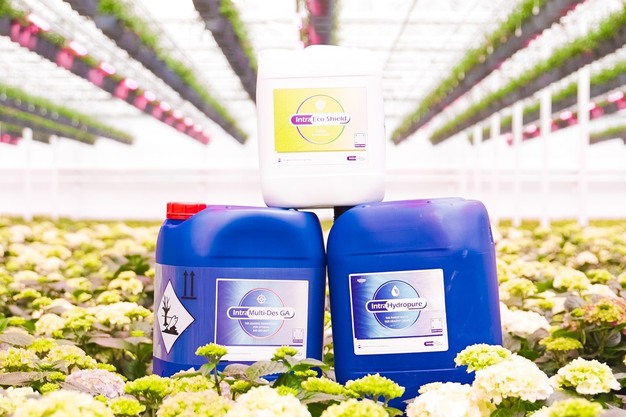 © Houweling Americas
© Houweling Americas
Broad spectrum pathogen control
Growers of all types of crops rely on Intra Multi Des GA to manage a wide range of pathogens, including fungal, bacterial and viral threats. The reported efficacy against ToBRFV has made it an essential component of hygiene protocols in tomato production.
“Intra Multi Des GA has shown excellent efficacy against ToBRFV and has proven effective in eliminating the virus on contact when used appropriately,” the team reported. Beyond viral control, growers also use the product against pathogens such as Fusarium and Pythium in crop and ornamental systems.
Waste behavior and crop turnover
Unlike non-residue disinfectants, Intra Multi Des GA is designed to leave a residual effect on treated surfaces during cleaning, providing extensive protection between crops. This waste is not intended to come into contact with the collected products, but is used to maintain sanitation during downtime.
Operational efficiency is another matter. The product is applied at a low concentration of use, requires a short contact time and usually requires only one application, allowing rapid crop rotations without compromising hygiene standards.
Long-term sanitation results
Growers who consistently incorporate Intra Multi Des GA have reported cumulative improvements in crop rotation hygiene programs over multiple seasons. In one documented case, a Dutch tomato operation managing ToBRFV reported no subsequent infections after integrating the product into the cleaning protocol.
“Starting clean remains one of the most effective ways to reduce the risk of early cycle infection,” the team emphasizes.
Supporting North American producers
Houweling Americas supplies Intra Multi Des GA and other Intracare solutions through established distribution partners and provides technical support to assist with implementation. In addition to hygiene products, the company’s portfolio includes nutrient solutions, growing substrates, LED lighting, water treatment technologies and biostimulants such as Intra Eco Shield, with Intra Boost, a next-generation willow bark-derived biostimulant, scheduled for a North American launch in early 2026.
Based in British Columbia and Ontario, Houweling Americas works closely with growers to develop integrated solution programs that support yield, plant health and resilience. The company is part of Royal Houweling, a Dutch family business founded in 1925 and recently recognized with royal status for its long-term commitment to horticulture and sustainability.
For growers seeking technical guidance on hygiene protocols or product performance, the Houweling Americas team encourages direct engagement for further assistance.
For more information:
Houweling America
1-800-252-5824
houwelingamericas.com


 Cannabis News4 months ago
Cannabis News4 months ago
 Florida4 months ago
Florida4 months ago
 Canadian Cannabis News4 months ago
Canadian Cannabis News4 months ago
 Best Practices4 months ago
Best Practices4 months ago
 Video4 months ago
Video4 months ago
 Video4 months ago
Video4 months ago
 Advanced Flower Capital4 months ago
Advanced Flower Capital4 months ago
 Video4 months ago
Video4 months ago










